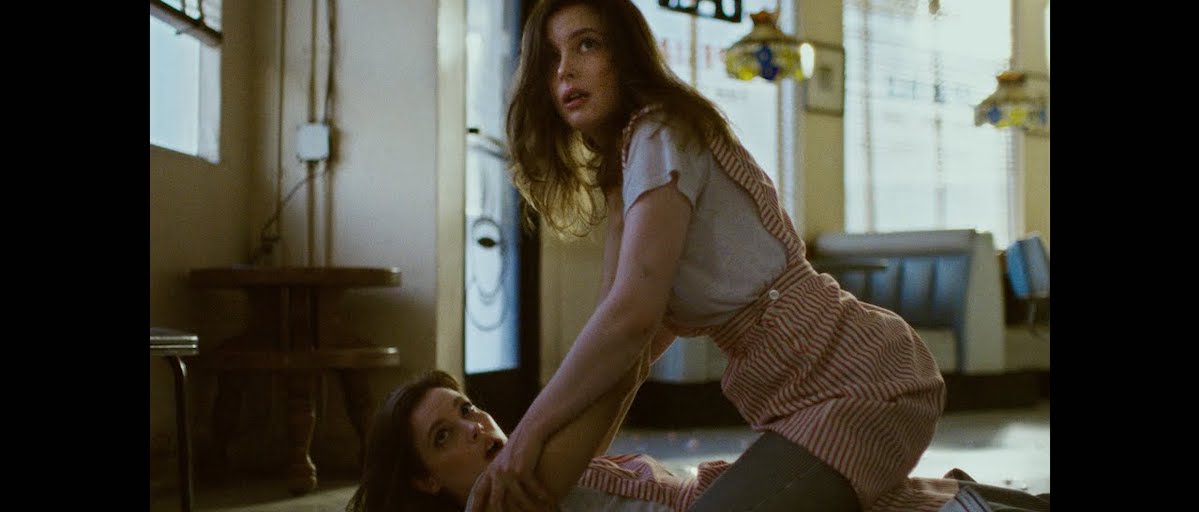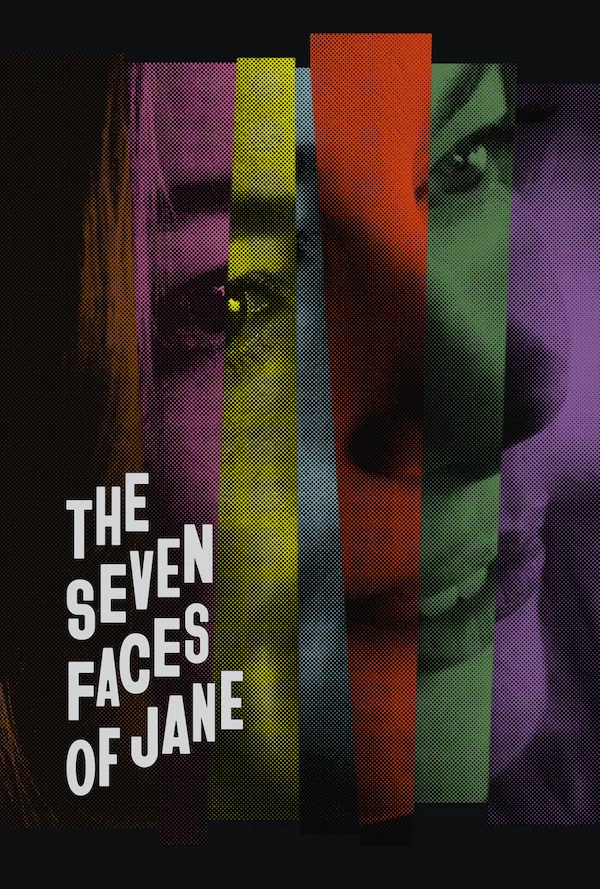When a movie is powered mainly by an intriguing concept, any complaint that a viewer might level against it can be waved away with the phrase, “That’s a feature, not a bug.”
Such is the case with “The Seven Faces of Jane,” an improvised, collaborative work by eight directors. It’s essentially eight short films revolving around a Los Angeles-area actress and single mother named Jane (Gillian Jacobs of TV’s “Community”) who drops her young son off at day camp and spends the remainder of the day (and night) on a rambling journey. It shifts gears between surrealist experiment, relationship drama, and psychological analysis equally indebted to Freud’s talking cure and a Tarot card deck.
The whole thing is held together, loosely—perhaps one should say gently—by producer-impresario Roman Coppola, who initiated and oversaw the project; and by Jacobs, who appears in every segment and also directed the framing scenes. The directorial roster is rounded out by Alex Takacs; Roman’s niece (and Francis Ford Coppola’s granddaughter) Gia Coppola (“Palo Alto“); filmmaker and visual artist Bomo Illuma; filmmaker/dancer/choreographer Ryan Heffington; Xan Cassavetes (“Kiss of the Damned”); actor Julian Acosta; Jacobs’ “Community” castmate Ken Jeong. The script was devised in the spirit of the “exquisite corpse” collaborative method, in which members of a group contribute words or images in sequence, sometimes without knowing what came before.
As you can imagine, this approach is at odds with any notion of neatness or consistency, and in fact, Roman Coppola has said that he exhorted each filmmaker to follow their own muse. Certain images or situations were selected in advance so that locations could be prepared, but beyond that, everyone had free rein. Unsurprisingly, the result feels like a return to film school for industry veterans of varying ages and experience levels: an exercise, at times a lark.
The cheerfully counterintuitive nature of “Jane” provides whateve charm it has as you’re watching it—and we might as well state here that if your eyes rolled while reading about the film’s production history, you shouldn’t go anywhere near it. Some segments are borderline unwatchable, particularly Gia Coppola’s mercifully brief Guy Ritchie-like crime comedy segment (which at least lets Jacobs play against herself) and Cassavetes’ formless interlude in which Jacobs picks up a beautiful, chatty hitchhiker; both feel more like notions than fleshed-out (though necessarily incomplete) ideas. And because Jane remains a bit of a cipher throughout (the better to allow various filmmakers to build around her) there’s only so much the lead performer can do to hammer-and-tong things into coherence. But inconsistency and aesthetic whiplash are features here, not bugs.
Best in show is a tie between Bomo Illuma’s segment, in which Jane meets an ex-lover named Tayo (Chido Nwokocha) on a beach where, ten years earlier, they realized that their racial and cultural differences (she’s white, he’s Black) were insurmountable; and Jeong’s segment, in which Jacobs’ “Community” costar Joel McHale plays another ex-lover.
Illuma’s deployment of different textures, colors, and lighting schemes to contrast past and present evokes the work of Barry Jenkins, and it’s remarkable how much agonizing detail the segment manages to impart about the relationship’s failure without spelling everything out. Much of the dramatic heavy lifting is done in reactive closeups of Jacobs and Nwokocha; and through Alex Krispin’s score, which serves as an endoskeleton for the whole project, though it’s too subtle to proclaim that aspect of its function.
Jeong’s segment is the polar opposite: McHale’s character meets Jane on a hiking trail, leading to a walk-and-talk that feels like this film’s answer to Richard Linklater’s series of “Before” movies. Its centerpiece is a nearly six-minute, unbroken shot of the characters talking about past mistakes and regrets, scrubby hills behind them. The dialogue is cringey in the way that earnest conversations between exes tend to be. It’s as embarrassing and touching as a confessional exchange overheard in public. Jacobs and McHale had scorching comic chemistry on “Community,” and Jeong surely drew on his familiarity with them as artists (and friends). But there’s more going on here than fan service. Both performers show sides of their talent that “Community” never tapped. And there’s a raw vulnerability to both that’s disarming.
Did I like “The Seven Faces of Jane”? I love the idea of it, I love that it exists, and I’m not sure how much I can ultimately say for or against it, considering that its flaws and virtues are baked into the methods that the artists committed to. It is the thing it set out to be. Reviewing a film this unusual, uninterested in playing by conventional rules, and devoted to the concept of freedom (damn the consequences) is perhaps like reviewing a game of charades. Most of the time, it’s just a game, something you do to pass the time with friends. But every once in a while somebody pulls a title from the hat and acts it out with such virtuosity that you feel like handing them an Oscar. Too bad it’s not possible on this platform to give each segment of an anthology its own star rating. If there were, Jeong and Illuma’s segments would get three-and-a-half stars. The rest would run the gamut from a half-star to two: you’ll know them when you see them.
Still, there aren’t many movies one can compare this to, though there are times when American indie film buffs might see it as an inversion of another Linklater picture, “Slacker,” a semi-improvised “hand-off” project that had no main character, but instead followed a succession of Austin oddballs around their neighborhood as they conversed (or monologued) about life. “The Seven Faces of Jane” is best summed up by a stray line offered to Jane by a woman who calls to offer an audition (in what turns out to be a creepy location) and realizes that Jane is so wracked with anxiety that she needs a pep talk to show up.
“There are some choices that are more honest than others,” she tells Jane. “But there are no mistakes.”
Now playing in select theaters and available on VOD.




















